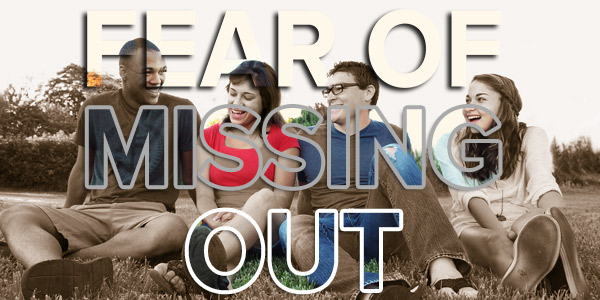The Weekend Scene

Written by
Shebna N. Osanmoh
Reviewed by
Dr. Ellen A. Machikawa- Social media and FOMO can distort your perception of others’ lives—focus on your own happiness and choices.
- Weekends are an opportunity to do what’s meaningful to you; safety and self-awareness matter more than fitting in.
- Comparison steals joy—embrace your unique way of enjoying life and make mindful decisions.

The final bell rings on a Friday afternoon at LGHS and a collective sigh of relief and cheers of joy ring out through the halls. You’ve made it! After a long week of classNamees, homework, studying, and other responsibilities you’ve successfully arrived at the weekend, FREEDOM!!!
It’s time to savor the next 58 hours of school-free life before coming back on Monday to do it all over again. The question is, how will you choose to spend this leisure time? Ideally, the weekend should be time when you are able to engage in past-times that are pleasurable, fulfilling, and relaxing. Time spent with friends, family, having fun excursions, social outings, the sky is the limit, right? Just make sure you have an impressive account of events through pictures and posts to share when you reconvene with your friends at school.
Ah-ha! This is where the conundrum comes in, how can you enjoy your weekend if there is almost as much emphasis on having exciting and enviable plans as there is to actually enjoy yourself? The commencement of the weekend can either be a blissful or anxiety provoking moment. Let’s explore some aspects of the Weekend Scene in high school.
FOMO is Fo’ REAL!
Ahhh, FOMO, the beloved acronym of a generation. The Fear of Missing Out (FOMO) is not a new phenomenon, however, it has become a popularized phrase especially in the age of social media. Amidst the many portals that teens have to broadcast the carefully customized fabulousness of their lives, it is easy to feel overwhelmed, left out, and questioning if your social life is sufficient. Wait, what’s this?? Johnny just posted 5 new pictures, #bestnightever. Where did this happen??? Why didn’t I know about it??? Did I miss out on the best night EVER?!? This is how it begins and snowballs into full-blown remorse. FOMO is no fun. Social media has added fuel to a fire that already burns bright for teens, based on inspiring envy in others by having the most impressive outward presentation.
There is a lot of pressure to experience what you’re “supposed” to as a teenager. Have a desirable social life, be in a relationship, go to parties, get asked to dances, have remarkably fun times on the weekends. All of which can now be documented and posted publicly. This exacerbates both the obligation to project the right image as well as the distress of feeling left out and less impressive than others. It’s understandable that you might find yourself comparing what your social life looks like next to your peers. But how realistic are people’s depictions of their lives or our beliefs of what everyone else is doing?
REALITY VERSUS PERCEPTION
What type of activities does the term, “weekend scene” elicit when talking about high school? Some enticing and provocative ones jump out; Parties! Hook-ups! Drinking! Smoking! Sneaking out! The stories you hear from the time you walk into the halls as a freshmen can make it easy to think that everyone is out being rebellious and having the time of their lives. While this may be the case for some, it’s not the case for all, and it may actually be the minority of students, rather than the majority, that engage in these activities. Some students in high school do get an early start on partying and experimenting with drugs and alcohol. According to a student survey done at LGHS, 16% of Seniors report drinking on a weekly basis and 8% smoke marijuana. Consider, however, that when students were asked how often they thought their peers drank alcohol they assumed that 45% of Seniors drank weekly. What happens in high school can be greatly blown out of proportion. Not everyone parties. Not everyone’s life is as awesome and exciting as they project online. Behind every photo-shopped and filtered picture that draws all the “likes” might very well be bored teens driving around aimlessly looking for something to do. That wouldn’t make as impressive of a post though, would it?
YOUR WEEKEND, YOUR CHOICE
Some teens might have wild and crazy weekends while others don’t. The glamorized view of high school portrays sex, drugs, and partying but there are so many other, more realistic, ways that teens choose to invest their free days. Some may savor finally having time to themselves and prefer to be solo on the weekends. Others might like to be with their close group of friends who they don’t get a chance to see during the week due to hectic schedules. There really is no normal so try to just focus on what you like.
It’s important, however, to note that some of the activities that teens engage in during the weekend bring more inherent risk than others. In an effort to bring awareness and encourage safety whenever possible, here are a few things to keep in mind.
Tips/Considerations When Going Out on the Weekends:

- 55% of fatal teen auto crashes occur on Friday, Saturday, or Sunday (www.iihs.org)
- Alcohol involvement in teen auto crashes is highest on the weekends (www2.courtinfo.ca.gov)
- % of LG 9-12th graders who report drinking weekly are 3/9/8/16 respectively (LG Shift Survey)
- 90% of acquaintance rapes involve alcohol/ 1 in 5 teenage women are victims of date rape (National Collegiate Date and Acquaintance Rape)
Weekend Statistics:
- If someone knows where you are and who you’re with it can help keep you safe
- Designating a sober friend to drive and keep track of you could save your life
- DUI & DIPs will get you a criminal record or much worse consequences
- Getting in a car with someone who has been drinking may be the last decision you make
- If you have a party at your house, it may get trashed
- You put your family at risk of legal action by allowing underage teens to drink/party there
These may seem like scare tactics, but this is Reality Check and the intention is to keep people aware of what is actually going on at the high school. The Weekend Scene is a fun topic, but many tragic and upsetting events often occur at higher rates during this celebrated time including: alcohol related deaths, sexual assault, violence, car accidents, vandalism of private property, theft, and unprotected sex that can lead to unwanted pregnancy. These are all things that most teens would prefer not to encounter, so please, do your best to play safe even when playing with fire.
EMBRACE DOING YOUR OWN THING
Regardless of what anyone else might do or say, weekends are time to spend as you, uniquely, choose. They are something you’ve work hard for all week and deserve to enjoy. If that means finding the best party and drinking with friends, please do your best to be safe and know the risks that you’re taking. If you like to stay at home in your pajamas, hang out with your dog, or bake cookies with your Mom, that’s awesome. Maybe you have a tendency to compare yourself to others and wonder if your weekends measure up. In this case the wise words of Teddy Roosevelt might be a helpful reminder,
“Comparison is the thief of joy”
Don’t let your joy be stolen away, find yours in every weekend by doing what you love, letting go of imagined obligation, and being mindful of the potential repercussions of your actions.
